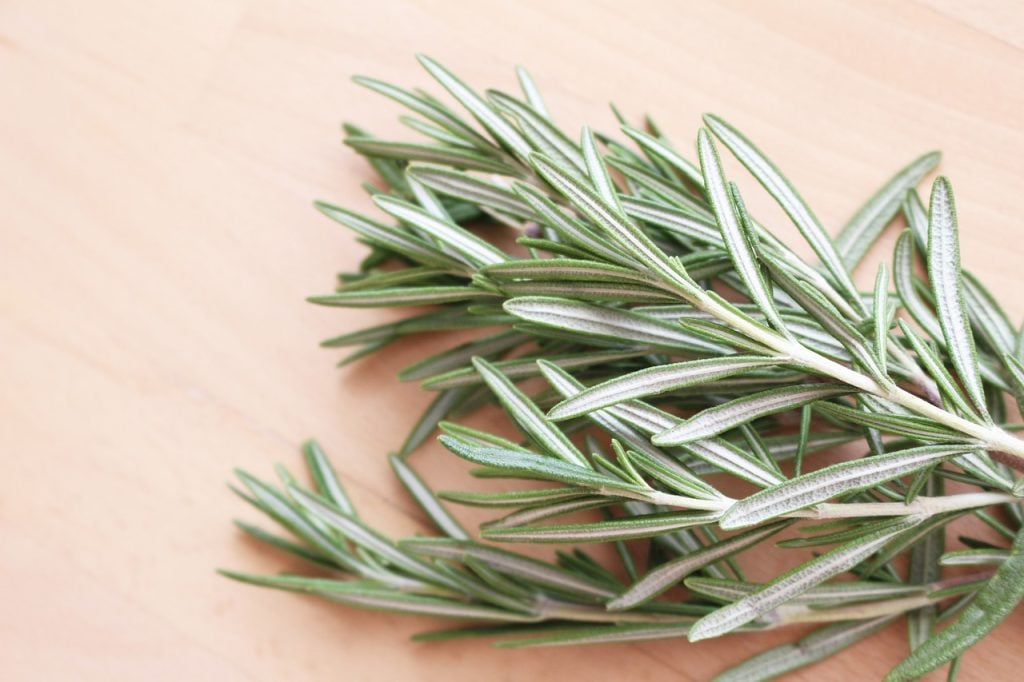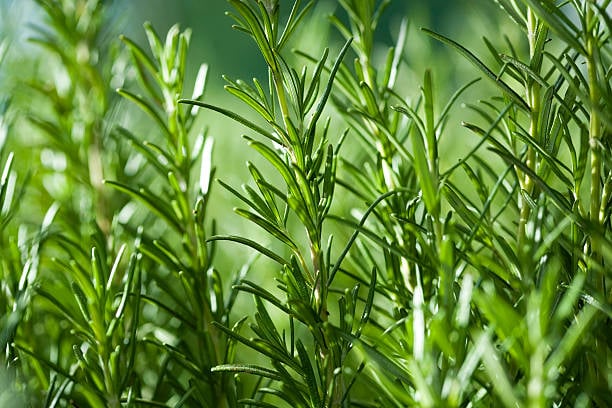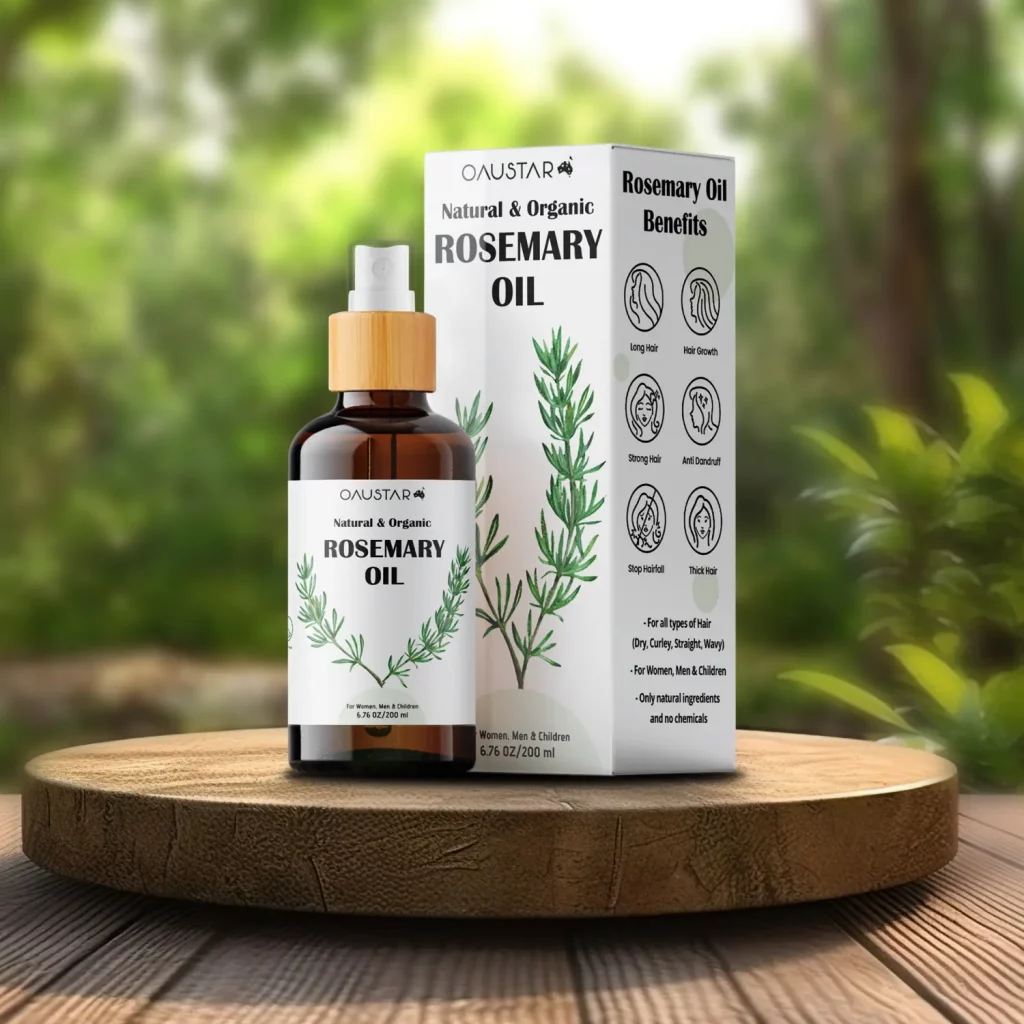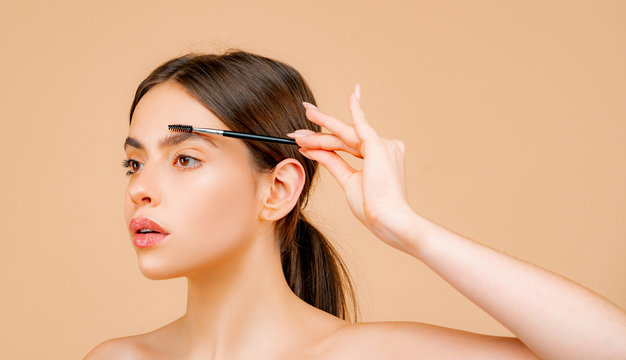Orders Above $30 - Get 15% OFF & Free Shipping, Use Coupon SPRINGSALE15
Rosemary Oil for Hair Growth [Uses & Benefits]
Rosemary oil, derived from the aromatic herb Rosmarinus officinalis, is celebrated for its numerous health and beauty benefits, particularly its role in promoting hair growth. This natural essential oil has gained immense popularity for its ability to stimulate hair follicles, improve circulation, and combat hair thinning and loss. In this article, we’ll delve into the various uses of rosemary oil for hair growth, backed by scientific evidence and expert recommendations.

Rosemary oil has long been revered in traditional medicine for its therapeutic properties. Its application in hair care is no exception, with many users reporting significant improvements in hair growth, thickness, and overall health. Let’s explore how you can harness the power of rosemary oil to achieve the hair of your dreams.
Rosemary Oil for Hair Growth
| Aspect | Details |
|---|---|
| Origin | Rosmarinus officinalis (Rosemary plant) |
| Key Components | Rosmarinic acid, camphor, 1,8-cineole, alpha-pinene |
| Primary Benefits | Stimulates hair follicles, improves circulation, combats hair thinning and loss |
| Application Methods | Topical application (diluted with carrier oil), shampoo addition, hair masks, scalp massages |
| Scientific Evidence | Studies showing improved hair growth and thickness, increased circulation |
| Usage Frequency | 2-3 times per week for optimal results |
| Precautions | Perform patch test, avoid direct application, consult healthcare provider if pregnant or nursing |
| Related Products | Oaustar Rosemary Hair Oil, DIY rosemary oil hair masks |
| Reference | Healthline |
How to Use Rosemary Oil for Hair Growth
- Scalp Massage: Mix a few drops of rosemary oil with a carrier oil, such as coconut or jojoba oil. Massage the mixture into your scalp for 5-10 minutes to stimulate blood circulation and promote hair growth. Leave it on for at least 30 minutes before washing it off with a mild shampoo.
- Hair Rinse: Add a few drops of rosemary oil to a cup of water and use it as a final rinse after shampooing. This method helps in reducing dandruff and adds a natural shine to the hair.
- Hair Mask: Combine rosemary oil with other beneficial oils like olive or avocado oil. Apply the mask to your scalp and hair, and leave it on for 30-60 minutes before rinsing. This deep conditioning treatment can strengthen and nourish your hair.
- Shampoo and Conditioner: Add a few drops of rosemary oil to your regular shampoo or conditioner. This will incorporate the benefits of rosemary oil into your daily hair care routine without any extra steps.
- DIY Hair Serum: Create a hair serum by mixing rosemary oil with a light carrier oil like grapeseed oil. Apply a small amount to your scalp and hair ends after washing your hair to prevent dryness and breakage.

How Rosemary Oil Stimulates Hair Growth
Rosemary oil is rich in antioxidants and anti-inflammatory compounds that contribute to its effectiveness in hair care. These components work together to rejuvenate hair follicles, increase blood circulation to the scalp, and reduce hair loss. Here are some key ways rosemary oil promotes hair growth:
- Improved Circulation: Massaging rosemary oil into the scalp enhances blood flow, delivering essential nutrients to hair follicles, which promotes growth.
- Hair Follicle Stimulation: The bioactive compounds in rosemary oil stimulate dormant hair follicles, encouraging new hair growth.
- DHT Reduction: Dihydrotestosterone (DHT) is a hormone linked to hair loss. Rosemary oil can inhibit DHT’s effects, preventing hair thinning.
- Anti-Inflammatory Properties: Reducing scalp inflammation creates a healthier environment for hair growth.
- Antioxidant Protection: Rosemary oil’s antioxidants combat free radicals that can damage hair cells, preserving hair health.

Application Methods for Rosemary Oil
To incorporate rosemary oil into your hair care routine, consider the following application methods:
Topical Application
Dilute rosemary oil with a carrier oil (e.g., coconut, jojoba, or olive oil) to avoid irritation. Apply the mixture to your scalp and massage gently. Leave it on for at least 30 minutes before rinsing.
Shampoo Addition
Add a few drops of rosemary oil to your regular shampoo. This method provides a gentle, continuous application that can improve hair health over time.
Hair Masks
Create a DIY hair mask by combining rosemary oil with other beneficial ingredients like aloe vera gel, honey, or yogurt. Apply the mask to your scalp and hair, leave it on for 20-30 minutes, and then rinse thoroughly.
Scalp Massages
Regular scalp massages with diluted rosemary oil can significantly boost circulation and stimulate hair follicles. Perform this treatment 2-3 times per week for best results.
FAQs About Rosemary Oil for Hair Growth
Q: How often should I use rosemary oil for hair growth?
A: For optimal results, use rosemary oil 2-3 times per week.
Q: Can rosemary oil cause any side effects?
A: When used properly, rosemary oil is generally safe. However, it can cause irritation if applied directly without dilution. Always perform a patch test before use.
Q: How long does it take to see results with rosemary oil?
A: Hair growth varies from person to person, but most users notice improvements within 3-6 months of regular use.
Q: Can I leave rosemary oil on my scalp overnight?
A: Yes, you can leave diluted rosemary oil on your scalp overnight for deeper penetration and enhanced benefits.
Q: Is rosemary oil suitable for all hair types?
A: Yes, rosemary oil is suitable for all hair types, but individuals with sensitive skin should use it with caution.
Scientific Evidence Supporting Rosemary Oil for Hair Growth
Several studies support the efficacy of rosemary oil in promoting hair growth. A study published in the journal “Skinmed” found that rosemary oil was as effective as minoxidil (a common hair growth treatment) in improving hair count in individuals with androgenetic alopecia. Another study in “Phytotherapy Research” demonstrated that rosemary oil improved hair regrowth in mice with testosterone-induced hair loss, highlighting its potential as a natural alternative to conventional treatments.



